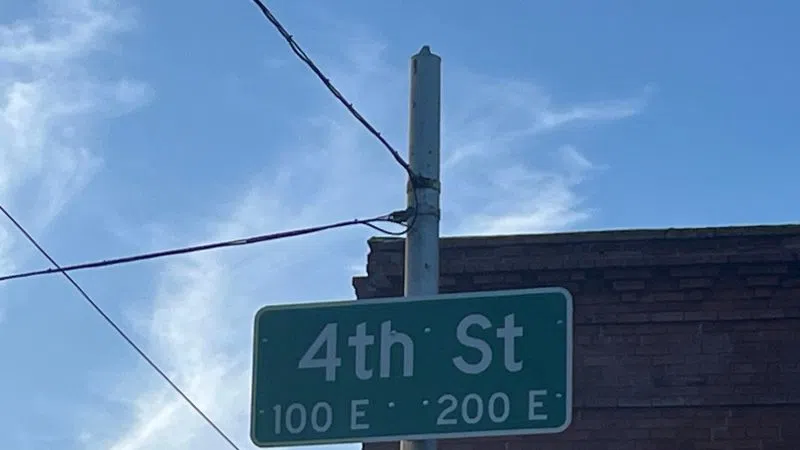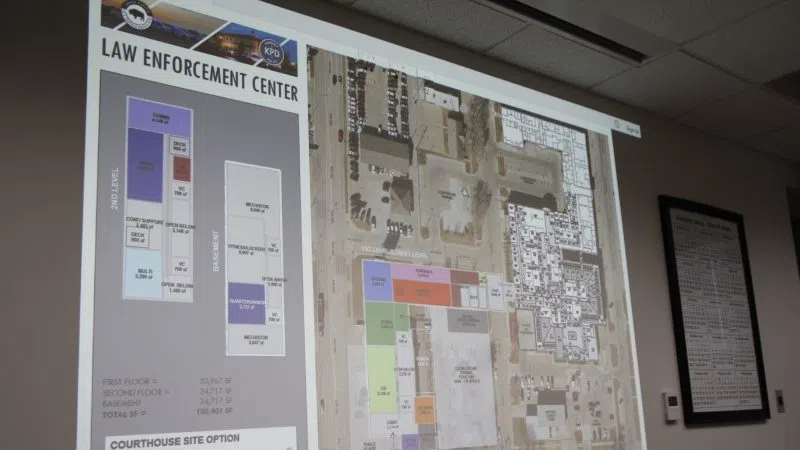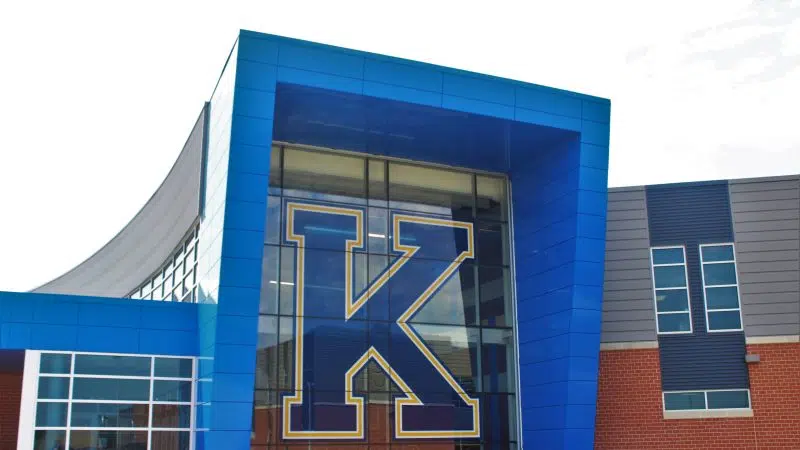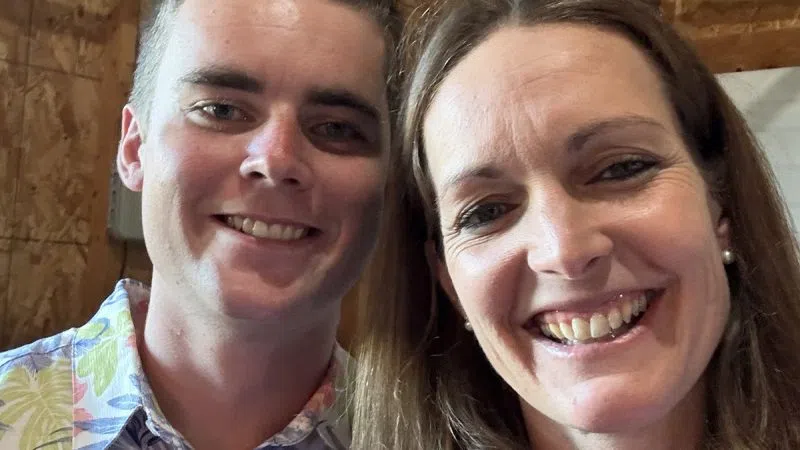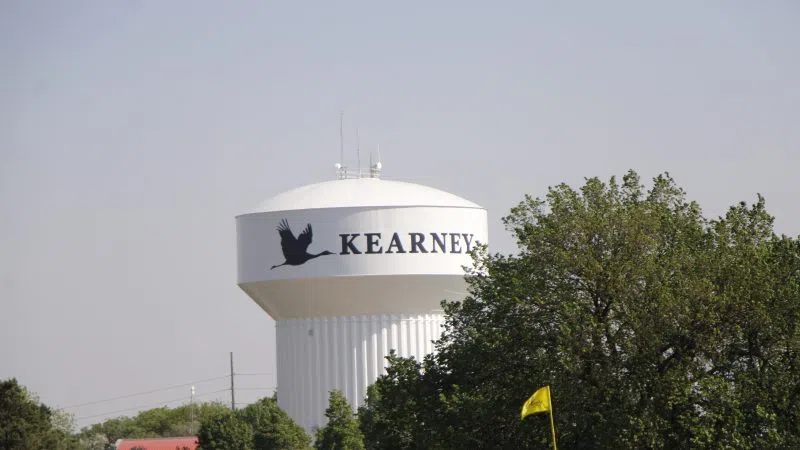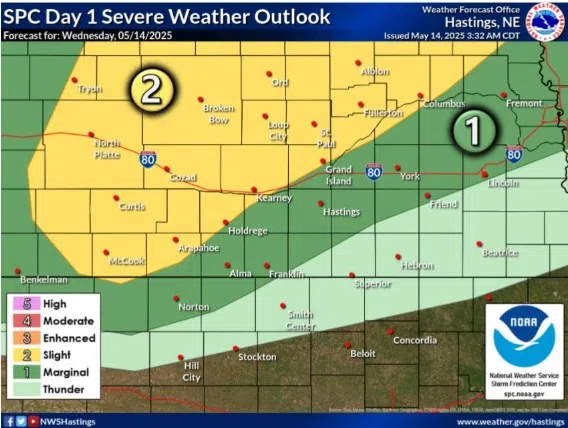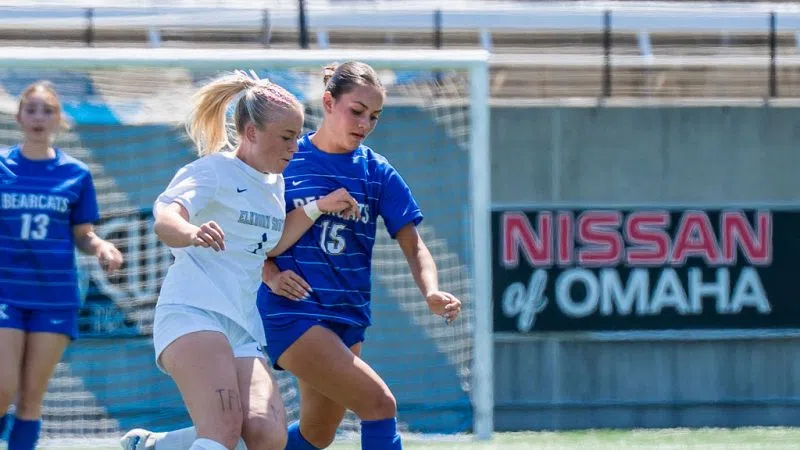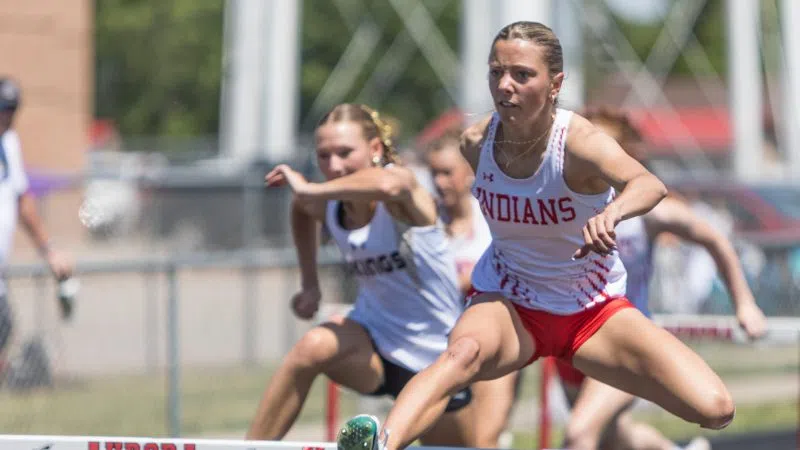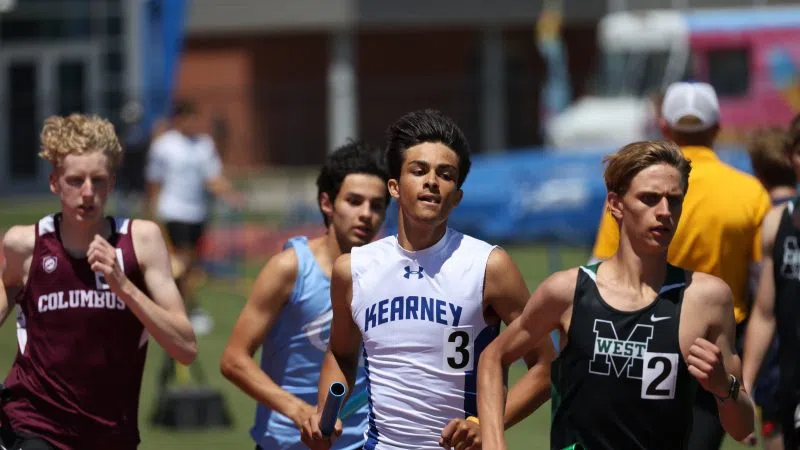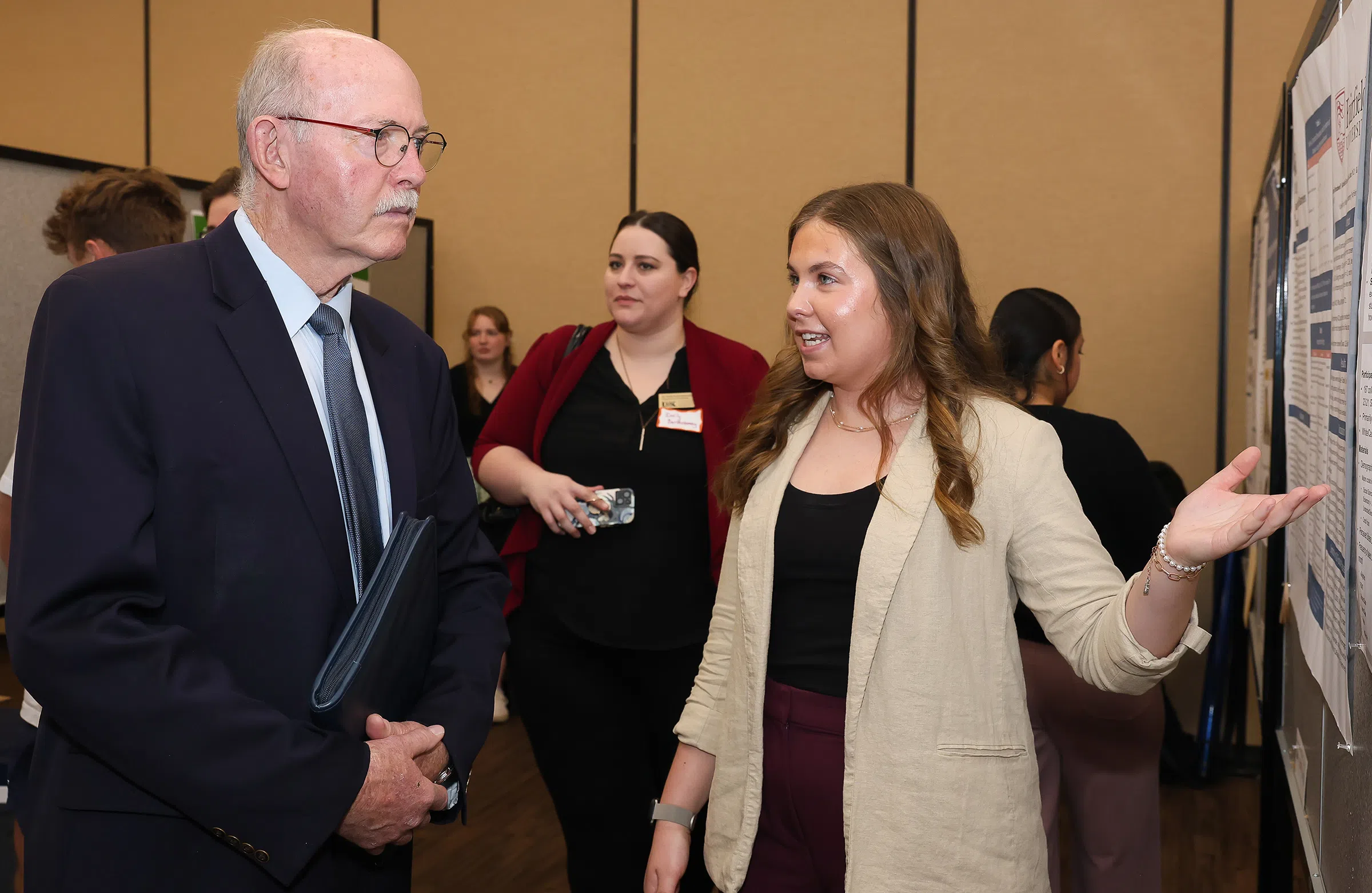
Skyler Summers shares her research with interim Chancellor Charlie Bicak during the Student Research Day celebration at UNK. (Photo by Erika Pritchard, UNK Communications)
KEARNEY – Theo Huber is an outdoorsy person.
The University of Nebraska at Kearney senior prefers to be outside exploring nature, rather than sitting at a desk, staring at a computer screen.
As a wildlife biology major, Huber was right in his element at Lake Ogallala, a popular fishing destination in western Nebraska. That’s where the Kearney native conducted part of his undergraduate research, focusing on ways to sustain and improve angling at the state recreation area.
Supported by funding from the federal Sport Fish Restoration Program, Huber worked with UNK associate professor Melissa Wuellner, graduate student Alexandria Keiler-Klein and employees from Nebraska Game and Parks to study the health of zooplankton populations in the lake. Those tiny organisms are important because they’re a key food source for juvenile fish and other aquatic creatures.
“Without zooplankton, the lake isn’t going to do very well,” Huber explained.
At Lake Ogallala – renowned for its fast-growing and feisty rainbow and tiger trout – the researchers wanted to know how a chemical compound used to eliminate nuisance fish such as carp and suckers impacts zooplankton. By comparing samples collected before and after a chemical application in fall 2023, they determined the lake renovation didn’t have a significant impact on the zooplankton population – good news for both anglers and fisheries managers.
Huber shared the results of this study Thursday during the annual Student Research Day event at UNK.
UNIQUE OPPORTUNITY
In its 27th year, the campuswide celebration highlights the creative and scholarly work produced by Lopers while acknowledging the important role of faculty mentors. There were more than 200 presentations from undergraduate and graduate students representing 25 academic departments – “very likely” making it the largest UNK Research Day ever, according to Dawn Simon, a biology professor and director of undergraduate research and creative activity on campus.
“Student Research Day allows us to showcase an aspect of UNK that we do very well, specifically mentorship of students and providing them with opportunities for hands-on experiences in their fields,” Simon said. “It’s also just a really fun day for us to interact with our students and be proud. It reminds me and other faculty how fortunate we are to work closely with such exceptional students.”
Simon believes every student should engage in research and experiential learning during their academic career because it encourages them to think critically and independently while strengthening soft skills such as communication, problem-solving and adaptability, which are valuable in any career.
“This is often very different than the type of learning that happens in a classroom, and in many cases is much more applicable to their future work outside academia,” she said.
Huber already has a job lined up with the Colorado Department of Natural Resources, where he’ll study native fish in the Gunnison River Basin, so his research experience is a direct benefit. He also plans to pursue a master’s degree in the future.
“Undergraduate research is a unique opportunity at UNK that many other schools don’t offer,” said Huber, who’s participated in projects the past three years. “I think it’s huge for professional development in your field, and it gives you an edge over other candidates applying for jobs or graduate school.”
In addition to his work in fisheries management, Huber studied striped bark scorpions at Ash Grove Wildlife Management Area, documenting the species in Franklin County for the first time.
“When most people think about scorpions, they picture deserts in places like Mexico, Arizona and New Mexico. They don’t think of prairies and Nebraska,” Huber said. “This is a species that has a very wide range. It’s from Mexico all the way up to Nebraska.”
Huber and his faculty mentor, biology professor Keith Geluso, wrote an article about their research that will publish in the next edition of Nebraskaland Magazine.
PURSUING A PASSION
With guidance from nearly 70 total faculty members, other UNK students conducted research on topics such as bird habitat along the Platte River, the impacts of lobbying on policymaking, job satisfaction among first-year teachers, sleep’s influence on mood and anxiety and the potential side effects of an antidepressant medication.
Grace Schaefer, a junior from Omaha, took a closer look at the prisoner-of-war internment camps located in Nebraska during World War II.
“Not a lot of people know that we actually had German POWs in Nebraska during this time,” she said. “It’s something that was very interesting to me because it’s not very well known and it’s central to Nebraska.”
Schaefer focused on Camp Atlanta, which held a total of 3,000 men at compounds constructed near Holdrege. Some 600 military and 130 civilian personnel provided security and maintenance, and the POWs were a valuable source of farm labor in the area.
Using materials provided by the Nebraska Prairie Museum, Schaefer transcribed two dozen interviews conducted with former prisoners, guards and local residents during a camp reunion in the 1990s. She was surprised by their positive views of the experience.
“All the POWs, the guards, the different farmers who had prisoners working for them, they all spoke about how great it was for them and how the Americans and the Germans were actually able to develop a really good relationship,” she said.
Those oral histories are now available online, and Schaefer plans to create a website and virtual exhibit featuring these interviews and other digitized items such as letters, photos and prison records.
“World War II has such a dark history – and it’s important that we recognize that – but this is a story that’s more about hope and love and how these people who should have been enemies came together,” she said. “I want to bring that to the public and make it more accessible so this is a more well-known part of Nebraska history.”
Double majoring in English and history, Schaefer pursued her project with assistance from associate history professor Will Stoutamire. She’s worked with him the past two semesters as part of UNK’s Undergraduate Research Fellows (URF) program, which provides a $1,200 annual stipend to participating students. Huber was also part of URF for his scorpion research.
“This program gives you an opportunity to dig deeper into a subject you’re interested in and gain experiences as an undergraduate that I don’t think a lot of other universities offer,” said Schaefer, who wants to combine her majors by writing historical fiction and working in public history. “I think you’re ahead of the game when you participate in undergraduate research at UNK.”




